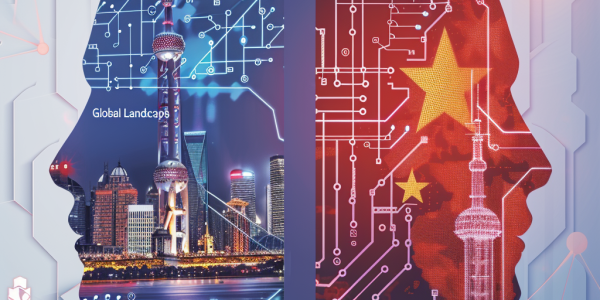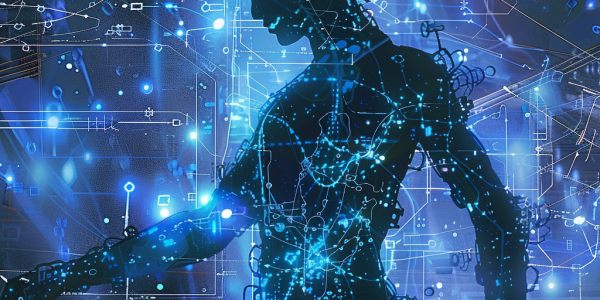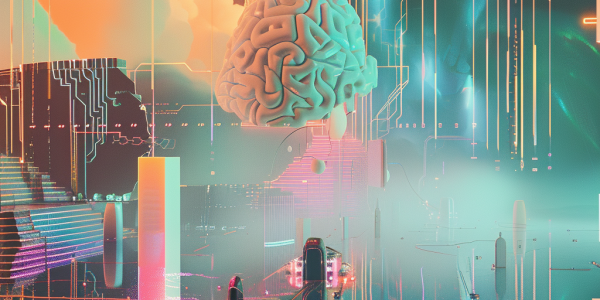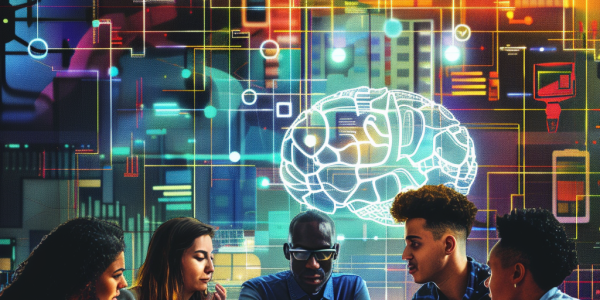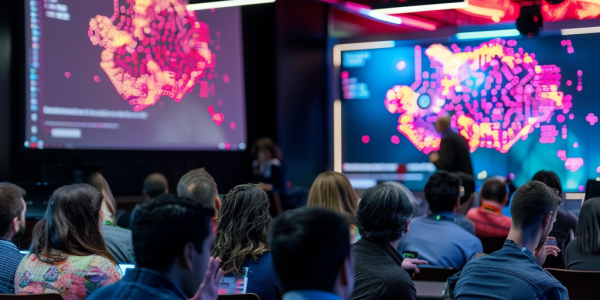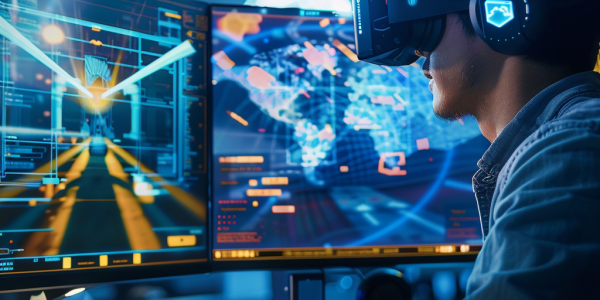Stanford Report Confirms U.S. Leads Global AI Landscape Over China
A recent Stanford University analysis using the Global Vibrancy Tool 2024 confirms the U.S. as the leader in artificial intelligence, significantly outpacing China in private investments and research output. The report highlights a stark contrast in AI investments, with the U.S. at $67.22 billion compared to China’s $7.76 billion. While the U.S. excels in AI infrastructure and development, China’s rapid patent generation showcases its commitment to advancing AI technology. As nations vie for dominance in AI, the landscape continues to evolve, making this competition crucial for the future of global innovation.
OpenAI Set to Launch Next AI Model ‘Orion’ by December 2024
OpenAI is set to launch its next AI model, Orion, by December 2024, marking a significant milestone coinciding with the two-year anniversary of ChatGPT. Unlike previous models, Orion will have a selective rollout to partner companies, enhancing its applications before a wider release. Described as potentially 100 times more powerful than GPT-4, Orion’s development is closely watched by the tech community, promising to reshape industries and elevate AI capabilities.
ChatGPT Dominates AI Searches, Google Gemini Emerges as Surprise Contender
A recent study by Superside reveals that OpenAI’s ChatGPT leads the AI tools market with 25 million monthly searches, while Google’s Gemini follows with 1.5 million searches. The findings indicate a growing interest in Gemini, potentially linked to its association with Google’s AI devices. As AI technology evolves, user preferences are becoming more pronounced, highlighting the competitive landscape of AI tools.
AI’s Future: Innovations, Challenges, and Political Implications Discussed at AICyberCon
Recent discussions at AICyberCon highlight the evolving landscape of artificial intelligence (AI) and its implications for cybersecurity. Experts suggest AI has not yet reached its peak, with ongoing advancements and ethical considerations shaping its future. As AI technology matures, the potential for innovation and challenges, including misinformation and deep fakes, remains a critical focus. The release of ChatGPT o1 showcases significant improvements in AI capabilities, emphasizing the need for responsible integration into various industries.
OpenAI Unveils Realtime API at DevDay Amid Executive Changes
OpenAI’s recent DevDay event unveiled the Realtime API, a groundbreaking tool for developers to create low-latency, AI-generated voice applications. Despite recent executive changes, OpenAI remains committed to innovation and affordability, reducing API costs by 99% over two years. The Realtime API promises to enhance user interactions with advanced voice functionalities, solidifying OpenAI’s position in the competitive AI landscape.
OpenAI’s CTO Mira Murati Announces Departure Amid Leadership Changes
Mira Murati, CTO of OpenAI, has announced her departure after over six years, aiming to explore new opportunities. Her exit comes during a turbulent time for OpenAI, following recent leadership crises. As the company navigates these changes, the impact on its future initiatives and commitment to ethical AI practices remains a focal point for the tech industry.
OpenAI Launches SearchGPT: A New Era in Online Search
OpenAI is set to disrupt the search engine market with its new innovation, SearchGPT, which integrates search capabilities into ChatGPT. Unlike Google, SearchGPT offers concise answer summaries, minimizes ads, and enhances user experience through conversational search. With a focus on efficiency and relevance, SearchGPT aims to transform how users find and interact with online information.
OpenAI Launches GPT-4o Mini: A Cost-Effective AI Revolution
OpenAI has launched the GPT-4o mini, a compact and cost-effective successor to GPT-3.5 in the ChatGPT framework. With a remarkable context window of 128k tokens and processing speeds of 166 tokens per second, this multimodal model is designed for diverse applications. Priced significantly lower than its predecessor, GPT-4o mini introduces innovative features like Instruction Hierarchy for enhanced security, marking a pivotal advancement in AI technology.
Revolutionizing Gaming with Claude AI Artifacts
Discover how Artifacts are transforming AI models like Claude 3.5 Sonnet into powerful productivity tools. From data dashboards to game development, explore the limitless possibilities of using Claude Artifacts for entertainment. Unleash your creativity with prompts for playing games like text adventures, pub quizzes, countdown challenges, platformers, and resource management simulations. Experience the fusion of AI technology and gaming with Claude Artifacts.
Toys ‘R’ Us Unveils Groundbreaking AI-Generated Promo Film at Cannes Lions Festival
Toys “R” Us wows audiences at the 2024 Cannes Lions Festival with a groundbreaking promo film created using OpenAI’s text-to-video tool, Sora. The 66-second clip, featuring the brand’s founder and mascot, marks a milestone in AI-driven filmmaking. With corrective visual effects and an original score, this collaboration between Toys “R” Us and Native Foreign showcases the potential of AI in entertainment.

